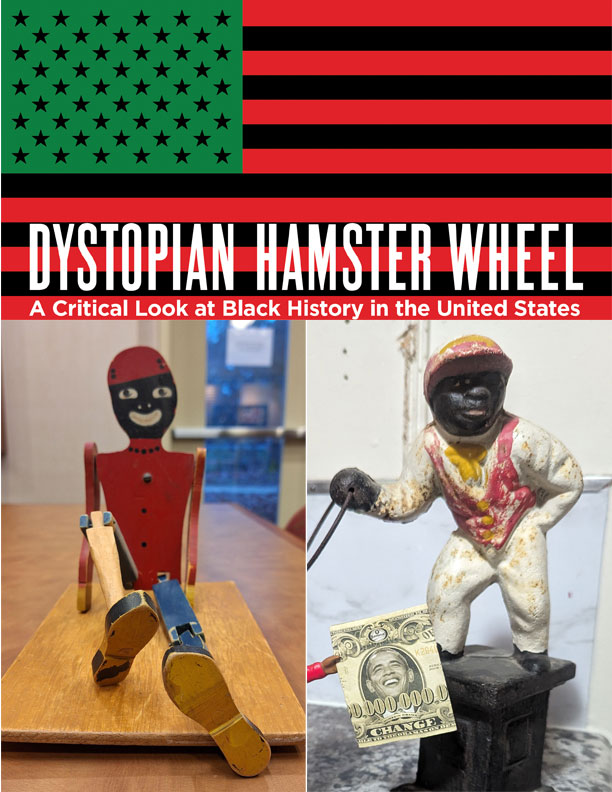
Dystopian Hamster Wheel: A Critical Look at Black History in the United States
Exhibit Dates: Friday, February 2nd, 2024 – Thursday, February 29th, 2024
Reception: Friday, February 2nd, 2024 2:00 pm - 4:00 pm
Light refreshments will be served.
We often think of history as simply the objective, chronological record(s) of past incidents that tell us the names, dates, geographic locations, and events that have an importance in or influence on society. However, history is also subjective as the facts and data help a society construct a cultural narrative about which events are not only worthy of remembering and why, but also how others can be rarely accepted and remembered.
American history is often problematic, making learning what truly and honestly happened in the past difficult. Further, because bias and perspective tend to reflect the attitudes and perspectives of dominant groups of society while marginalizing or completely ignoring others, history tends to become generalized and simplified, often for the sake of identity politics, prejudice, and propaganda. Further, this lack of acknowledgement allows for the repetition of the shameful simply because it is ignored. This absence of reconciliation allows the shameful to be cyclical, resurfacing, propagating, persisting, and predictably repetitive. Many of the attitudes, perspectives, and practices that produced the objects in the collection are repeating in contemporary United States.
Dr. Eric Atkinson of the English Department has curated the collection. The displayed pieces are the personal artifacts of the Atkinson family and are meant to show not only where African American history touches and impacts what is typically understood to be the American historical narrative, but also how history is personal—not just dates, names, and locations—but acknowledging perspectives, attitudes, and biases that are actively being repeated. In other words, because there is a personal connection with history, these pieces are examples of moments, snapshots in time, that allow us to understand the legacy they bring with them that still affect American culture and society today, repeating the past.